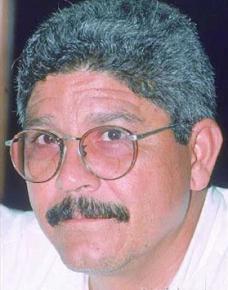Debt crisis in the Dominican Republic
The issue of foreign debt became even more central to politics in the Dominican Republic after the government of President Leonel Fernández was left without money following a binge of spending during Fernández's successful reelection campaign in May.
Hugo Cedeño is a leading member of the Socialist Workers League and president of the professors union at the Santo Domingo Autonomous University. He talked to about the effect of the Dominican Republic's debt crisis.
PRESIDENT LEONEL Fernández's spent millions of dollars during the last election campaign, helping him to a third term in the vote held in May. What was the impact of this kind of government spending on the economy?
THIS GOVERNMENT, like all previous ones, used part of the money allocated by the Budget and Public Expenditure Act to reelect President Leonel Fernández.
More than 20 billion Dominican pesos ($600 million) were spent in the election campaign to buy off and influence leaders and activists of the opposition parties, to give away up to 10 pesos to neighborhood leaders of Fernández's party [the Dominican Liberation Party] to work in the electoral campaign, and to rush up public works projects.
The government was left without a penny by the end of the campaign. This led Fernández to request from the National Congress a "complementary budget," supposedly to confront the economic crisis facing the country.
But workers and the middle class will pay for the recently approved 33 billion pesos ($1 billion), along with other measures announced by Fernández to deal with the crisis. Where will those 33 billion pesos come from? The government itself admits that it has to procure new loans from international financial institutions, increasing the foreign debt in the process.

TELL US about the origins of the foreign debt in the Dominican Republic and where it stands today?
AS YOU know, the foreign debt sucks the blood of dependent nations and squeezes their economies, and it does the same to the workers of these countries, who ultimately are the ones who end up paying for it.
The capitalist ruling class and its ideologues argue that the foreign debt is used to develop non-industrialized countries. But revolutionary socialists like us argue the opposite, and show that the bigger the foreign debt, the greater the poverty among workers and the masses.
For instance, in the Dominican Republic, by 1961, the debt with international banks was around $14.8 million. During this period, the Dominican economy was strong, and poverty levels were low.
Today, we have a foreign debt of $10.2 billion, and with respect to five decades ago, the country and especially workers suffer from a crisis so acute that even the agricultural goods that are normally produced in the countryside are nowhere to be found in the market, or have a price so high that they cannot be acquired by the working and popular masses. The poverty level has increased. And over 40 percent of the national budget goes to interest payments and repayments of the foreign debt.
WHAT HAVE been the effects of paying the foreign debt?
SINCE THE government has agreed to pay the foreign debt, they also discuss and implement an economic and social plan that hurts the living standards of working people and a section of the middle class, in order to reduce their income and their spiritual and material conditions of existence--so as to empty out what little they have in their pockets for the government to honor this debt and continue to borrow more.
The economic, political and social plan that the ruling class puts in motion is the same all over the world: they freeze wages; eliminate and privatize health, education and physical education; reduce social investments; eliminate subsidies; cause the scarcity of electrical services, communications and transportation; and criminalize popular protest; bribe some of the activists in the struggle, and government officials. The governments enrich themselves by controlling financial resources through corrupt means.
What do we propose as revolutionary socialists? We urge workers and other popular sectors to fight for non-payment of the foreign debt, or at least a moratorium on payments. We demand an investigation into the use of the billions of pesos borrowed [by the government], imprisonment of corrupt government officials and recovery of the stolen funds.
We demand that the money used for the foreign debt go to ensure a salary increase for workers in proportion to the increase in the cost of living, and to investments in health, the quality of public education and infrastructure, to guarantee jobs for the unemployed. We also demand the nationalization of privatized firms and electricity, drinking water, telephone services, distribution of fuels and so on.
In the end, we need a program that will serve to organize workers for the struggle, so that their level of consciousness and political experience develops in an anti-imperialist, anti-capitalist framework, in favor of a struggle for socialism in which workers, through their organizations, are the ones who take control of the state and the economy.
Finally, we call the governments of Cuba, Venezuela and Bolivia to lead a front of debtor countries for the non-payment of the foreign debt, so that with their resources, they solve the major economic problems of workers in each of those countries.


